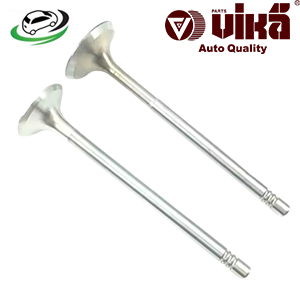-18%
Get Air Filter Element Sub Assy Land Rover Range Rover 2006-2010/Porsche Cayenne 2003-2018/VW Touareg 2004-2017/Audi Q7 2007-2015
Air filters are crucial components in vehicles and various machinery, responsible for maintaining the engine’s health and performance. They trap dirt, dust, and other contaminants from the air, preventing them from entering the engine and causing damage. Understanding the function, types, maintenance, and common issues related to air filters is essential for vehicle owners, mechanics, and enthusiasts.
Function of Air Filters
- Protecting the Engine: Air filters prevent harmful particles from entering the engine. Without a filter, contaminants can cause abrasion and wear, leading to decreased performance and potential engine failure.
- Improving Fuel Efficiency: Clean air filters ensure an optimal air-to-fuel ratio, improving fuel combustion and efficiency. A clogged filter can restrict airflow, causing the engine to work harder and consume more fuel.
- Enhancing Performance: A well-maintained air filter allows the engine to breathe easily, enhancing overall performance and power output.
- Reducing Emissions: By ensuring a clean and adequate air supply, air filters help in the complete combustion of fuel, thereby reducing harmful emissions.
Types of Air Filters
- Paper Air Filters: These are the most common type of air filters found in vehicles. They are made from pleated paper and are effective at trapping contaminants. They are typically inexpensive and easy to replace but need frequent replacement.
- Foam Air Filters: Made from a sponge-like material, foam filters are often used in off-road vehicles and motorcycles. They can be cleaned and reused multiple times, making them cost-effective in the long run. However, they may not filter as finely as paper filters.
- Cotton Gauze Air Filters: Often found in high-performance vehicles, these filters consist of multiple layers of oiled cotton gauze. They offer excellent airflow and filtration efficiency and are washable and reusable. Brands like K&N are popular for cotton gauze filters.
- Synthetic Air Filters: These filters use synthetic materials to provide high filtration efficiency and durability. They can be found in various applications, from standard vehicles to heavy machinery.
- Carbon Air Filters: These filters contain activated carbon, which helps in removing odors and harmful gases in addition to particulate matter. They are commonly used in cabin air filters to improve air quality inside the vehicle.
Signs of a Dirty or Failing Air Filter
- Reduced Fuel Efficiency: A noticeable drop in fuel economy can be a sign of a clogged air filter, as the engine struggles to get enough air.
- Engine Misfires or Rough Idling: Dirty air filters can lead to improper fuel combustion, causing the engine to misfire or idle roughly.
- Decreased Engine Performance: A lack of adequate airflow can reduce engine power, making acceleration sluggish and overall performance poor.
- Unusual Engine Sounds: Whistling or coughing noises from the engine can indicate that the air filter is clogged and air is being forced through restricted spaces.
- Check Engine Light: In some cases, a dirty air filter can trigger the check engine light due to the engine’s sensors detecting poor air quality or incorrect air-to-fuel ratios.
Maintenance and Replacement
Regular maintenance and timely replacement of air filters are crucial for optimal engine performance and longevity. Here are the steps to follow:
- Inspection: Check the air filter at regular intervals, typically every 12,000 to 15,000 miles, or as recommended by the vehicle manufacturer. In dusty or harsh environments, more frequent inspections may be necessary.
- Cleaning: Some air filters, such as foam and cotton gauze types, can be cleaned and reused. Follow the manufacturer’s instructions for proper cleaning methods and re-oiling, if required.
- Replacement: Paper and synthetic filters should be replaced when dirty or clogged. Always use the correct type and size of filter specified for your vehicle.
- Professional Service: If unsure about the condition of your air filter or how to replace it, consult a professional mechanic for accurate assessment and service.
Replacement Procedure
- Locate the Air Filter Housing: In most vehicles, the air filter is housed in a plastic or metal box near the engine. Consult the vehicle’s manual for the exact location.
- Open the Housing: Release the clips or screws holding the housing cover. Carefully remove the cover to access the air filter.
- Remove the Old Filter: Take out the old air filter and inspect it for dirt and debris. Dispose of it properly if it is a disposable type.
- Clean the Housing: Wipe out any dirt or debris inside the housing to ensure a clean environment for the new filter.
- Install the New Filter: Place the new air filter into the housing, ensuring it fits snugly and securely.
- Close the Housing: Reattach the cover and secure it with the clips or screws.
- Final Check: Ensure everything is properly reassembled and there are no loose parts before starting the engine.
Common Issues and Troubleshooting
- Incorrect Filter Type: Using the wrong type or size of air filter can lead to poor filtration and engine performance. Always use the specified filter for your vehicle.
- Improper Installation: Ensure the air filter is correctly installed and the housing is securely closed to avoid unfiltered air entering the engine.
- Neglecting Maintenance: Failing to regularly inspect and replace the air filter can lead to engine damage and decreased performance.
- Aftermarket Filters: While some aftermarket filters may offer better performance, ensure they meet the vehicle manufacturer’s specifications to avoid potential issues.
Follow us on Facebook for more parts.

![Front Control Arm Bush AUDI Q3 2012-2018 [RDW] 3C0199231A](https://www.onestopautogarage.co.ke/wp-content/uploads/2024/09/3C0199231A.jpg)

